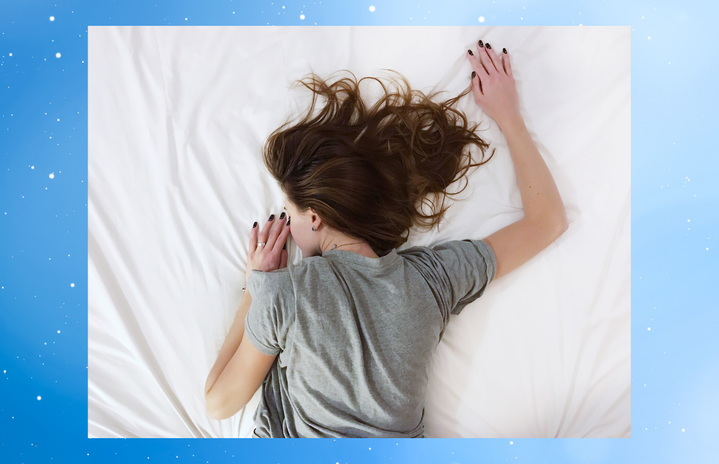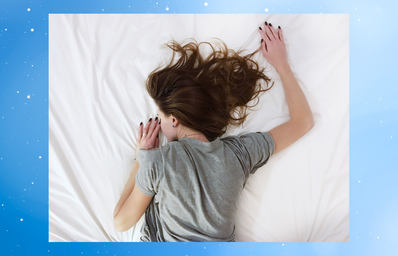The 2024 exam diet is quickly approaching, and thus, preparation for exams and final deadlines is well underway. While pulling all-nighters in the library can be appealing if you can sleep until noon the next day, this lifestyle often feels unsustainable and unfulfilling. However, if you’re anything like me, waking up early to start working can feel nearly impossible (especially when you don’t have a lecture or tutorial dragging you out of bed). If you’re looking for ways to help you reset your sleep routine amidst the immense to-dos of exam season, keep reading.
Practice Good Sleep Hygiene
When it comes to waking up earlier, the sleep you get the night before can make or break an early-rising streak. Sleep hygiene refers to the habits and environment of your sleep. Dr. Matthew Walker’s book Why We Sleep: The New Science of Sleep and Dreams explains that good quality sleep comes down to good sleep hygiene, considering a few factors such as light exposure and room temperature.
First, ensuring you sleep in a cool, constant temperature can help you doze off more easily. Even if it means cracking a window before getting into bed, having a colder room has always helped me get cozier and fall asleep.
Second, lights (ESPECIALLY our electronics) at night can mess with our circadian rhythm, making it harder to fall asleep. To remedy this, I’ve opted to charge my phone on the other side of the room to avoid scrolling in bed. Having to get up to turn off my alarm has also helped me resist hitting snooze. Opt for a book and dim reading light if you still want something to do while you get tired enough to fall asleep. Also, if your room is like mine and gets a lot of ambient light from the street, using an eye mask can help you achieve that total darkness that can help you fall asleep with ease.
I’ve realized the importance of keeping my bed strictly for sleeping (and…other sleep-adjacent things…). When work seeps into this space (i.e., writing essays or studying in bed), it blurs the lines and makes it challenging to turn your brain off at night. Maintaining a clear boundary between work and rest is essential to ensure quality sleep.
Finally, if you’ve been on Sleep TikTok recently, you’ve probably seen people raving about Sleepytime Mocktails. Originally created by TikTok creator Gracie Norton, This concoction, made with tart cherry juice, magnesium powder, and lemon-lime sparkling water, is touted for its ability to promote relaxation and aid in falling asleep more easily. According to Sleep Foundation, the cherry juice’s naturally-occurring melatonin, tryptophan, and powdered magnesium, “can help you sleep longer, get better quality sleep, and feel less tired,” especially if consumed roughly one hour before bed. While I’ve struggled to locate tart cherry juice at my local Tesco, I’m a huge fan of the drink. Maybe it’s a placebo effect or a fun thing to add to my night routine, but I believe that making and drinking it has helped refine my sleep patterns.
Be Realistic…or Push Yourself a Bit
Resetting your sleep routine from noon to nine in one go can feel overwhelming. Instead, start by setting your alarm 30 minutes to an hour earlier than usual. Once you’ve adapted to that schedule, gradually bring it forward by another 30 minutes or an hour. This incremental approach makes the transition more manageable and encourages your body to naturally wake up earlier. To aid in adjusting, try going to bed 30 minutes to an hour earlier. I’ve found that by getting to bed earlier, I naturally wake up a bit earlier.
But, if you find yourself pressed for time to adjust your waking schedule, there are methods to expedite the transition. Personally, when I need to transition into a revised waking routine swiftly, I dedicate a single morning to rising at my target hour, regardless of how late I get to bed the night before. This method sets the stage for fatigue to hit earlier, which eases the transition to falling asleep at the right time for waking up feeling refreshed the following day.
Make Yourself Eager to Rise
If you’re like me, hitting the snooze button is practically a reflex, no matter how many alarms you set. Here are a few tricks to curb the snooze cravings:
- Prep Your Wake-Up Call: Have something ready to jolt you into action as soon as you open your eyes. A little external motivation can go a long way, whether it’s a glass of water at your bedside, early-morning appointments, or a friend on call for a friendly wake-up nudge.
- Morning Rituals: Plan to do something you enjoy right after waking up, like brewing a fresh cup of tea or coffee or whipping up a quick breakfast treat. Nothing too elaborate, just enough to entice you out of bed.
- Illuminate Your Morning: Consider investing in a sunlight lamp if you’re in a perpetually dark locale or face long winter nights (i.e., Scotland in the dead of winter). Strategically placed next to your bed or set to turn on remotely, it can help convince your body that it’s time to rise.
- Make Your Bed ASAP: If nature calls before your alarm does, make it a habit to make your bed before you use the bathroom. A made bed can curb the temptation to crawl back under the covers and coax you into embracing the day ahead.


